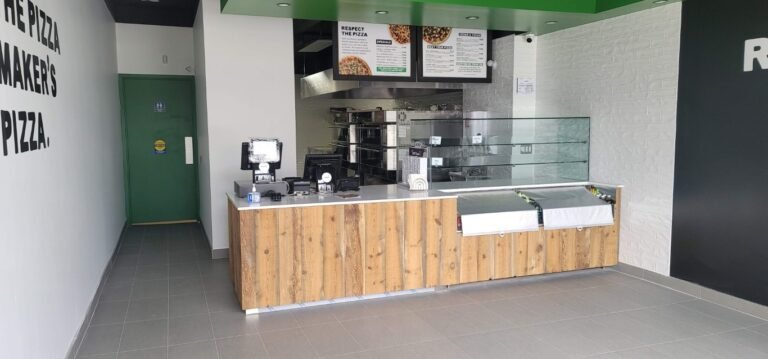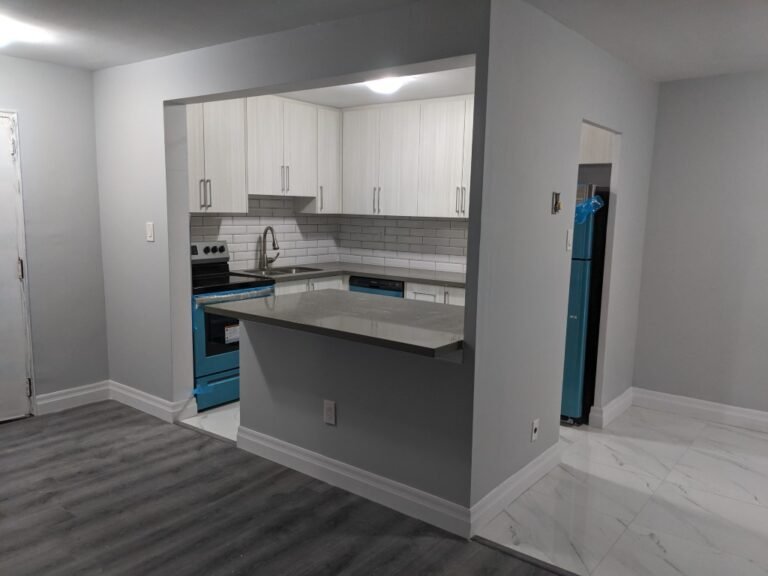The Importance of Home Renovation
Renovating a home is an excellent way to update and improve its appearance, functionality, and value. Home renovation allows homeowners to personalize their living spaces, enhance their comfort, and better meet their evolving needs. Whether the goal is to create more space for a growing family, upgrade outdated or damaged features, or increase the home’s energy efficiency, investing in home renovations is almost always worth it.
Furthermore, with Toronto’s competitive real estate market and high housing costs, renovating your existing home may be more cost-effective than buying or building a new one. Additionally, renovations can help avoid potential safety hazards and make your home safer by repairing structural issues like leaks or cracks.
More About Dura Build Contracting
Brief Overview of the Cost of Home Renovation in Toronto
Home renovation costs vary widely depending on several factors. These factors include the scope of work required and the materials used in the project.
In Toronto – one of Canada’s most expensive housing markets – renovation costs tend to be higher than in other cities due to relatively high labour costs. The average cost for a typical home renovation project can range from $20K to $100K or more depending on several factors such as the size of your project, materials used and labour requirements.
Also, unexpected expenses may crop up during work due to unforeseen circumstances like additional repairs that need fixing before proceeding with construction works. It’s essential for homeowners planning renovation projects first to have an idea of what they want to achieve so they can budget accordingly while also considering any additional expenses that may arise during construction.
Request a Quote for Toronto Renovation Services
Purpose and Scope of this Article
This article aims to provide valuable information about how much it will cost you for various home renovations you may want to undertake in Toronto. By giving a detailed breakdown of costs, we hope to help homeowners understand what they might expect and budget accordingly.
The article will examine common types of home renovations and provide some tips on reducing the overall cost of these projects. It’s essential for any homeowner considering the renovation project to understand the costs involved before starting work.
This article will help you better assess the total cost of your home renovation project in Toronto and make more informed decisions about how to execute it. Home renovation is an investment that can significantly improve your living experience and increase your property’s value.
However, it’s essential to understand what you are getting into regarding costs before taking on any project. With this article, we hope to provide valuable insights to help homeowners plan their projects better, manage expenses effectively, and ultimately achieve their desired outcomes more comfortably.
Factors that Affect Home Renovation Costs in Toronto
Renovating your home can be an exciting and daunting task at the same time, especially when it comes to budgeting and cost estimates. The cost of renovating a home in Toronto can vary depending on several factors.
Understanding these factors will help you plan and budget for your renovation project. Here are the key factors that affect home renovation costs in Toronto.
Size and Layout of the House
The size and layout of your house significantly impact renovation costs. Large homes or homes with complicated layouts typically require more materials, labour, and time to complete a renovation project than smaller or simpler houses. For example, suppose you have a large kitchen with an island or breakfast nook. In that case, updating it may require new countertops, cabinets, flooring, lighting fixtures, and additional plumbing work to accommodate any new appliances.
Materials Used for Renovation
The type and quality of materials used in your renovation project also affect the overall cost. High-end materials such as marble countertops or hardwood flooring are more expensive than laminate or vinyl options but can add significant value to your home. Similarly, custom-built elements like cabinetry are likely more costly than pre-fabricated pieces.
When considering materials for your renovation project, remember that some may come with higher maintenance costs over time. For example, while natural stone tiles may look stunning in bathroom remodels or shower surrounds, they require regular maintenance to prevent water damage.
Labour Costs
Another major factor affecting home renovations is labour costs. The professional experience of contractors can vary greatly- some contractors charge higher rates but have years of experience, while others may offer lower rates but lack experience.
It’s essential to do research before choosing a contractor – ask for references from past clients who had similar projects done, read reviews online or ask friends and family for recommendations. It’s also essential to set clear expectations with your contractor regarding the timeline and budget for your project.
Permits and Other Fees
Home renovation projects often require permits from the city or municipality where you live. These permits come with fees that must be paid before work can commence on your project. The cost of these permits can vary based on the work scope, so it is essential to research what permits are required and budget accordingly.
Other fees may include debris removal, equipment rentals (such as a dumpster), or additional inspections needed throughout the renovation process. Be sure to account for all potential fees when developing your renovation budget.
Location and Accessibility
The location of your home can affect renovation costs. Homes in densely populated areas tend to have higher labour costs due to increased competition among contractors for available projects. Conversely, homes in remote areas may have higher delivery fees associated with transporting materials to the job site.
Accessibility is also a factor that affects renovation costs. If parts of your home are difficult to access (such as high ceilings or tight stairwells), this may require additional labour time or equipment rentals, increasing overall project costs.
Several factors affect home renovation costs in Toronto, including size and layout of the house, materials used for the renovation, labour costs, permits and other fees associated with permitting requirements from local authorities, and location/accessibility concerns. Understanding each factor will help you develop an accurate estimate upfront while allowing for planning flexibility during different phases of construction without losing sight of overall objectives around functionality and aesthetics-wise decisions that will keep you motivated throughout this exciting process!
Kitchen Renovations: Designing Your Dream Kitchen
Are you tired of your outdated kitchen? A kitchen renovation is a great way to update and modernize your space.
When planning a kitchen renovation, it is essential to consider the cost breakdown for different project components. The four main components of a kitchen renovation are cabinets and countertops, appliances, flooring, and plumbing and electrical work.
Cabinets and countertops are one of the most expensive parts of a kitchen renovation. Custom cabinets will cost more than pre-fabricated or semi-custom options.
High-end materials like granite or quartz are also cheaper than laminate or solid surface options. Expect to pay between $6,000-$15,000 for cabinetry alone in Toronto.
Appliances are another costly component of a kitchen remodel. Stainless steel appliances are popular choices for their durability and sleek appearance.
However, these high-end appliances can be pricey. Prices range from $4,500 to $10,000 depending on whether you want top-of-the-line models or more affordable options.
Flooring can range in price depending on the material chosen and installation costs. Ceramic tile is durable but can be cold underfoot, while hardwood floors provide warmth but may require more maintenance over time.
Plan for an average cost range between $1,500-$5,000 for installation alone. When renovating your kitchen, plumbing and electrical work must be considered, as new appliances may need additional wiring or plumbing lines installed to run correctly.
Bathroom Renovations: Transform Your Space into Your Oasis
Bathroom renovations can add significant value to your home while providing an updated space that meets your needs. When planning a bathroom renovation in Toronto, it is essential to consider the cost breakdown for different components such as fixtures (sink, toilet shower), tiles and flooring, and lighting.
Fixtures are one of the primary components of a bathroom renovation. Newer models of fixtures, such as rainfall showerheads or soaking tubs, can come with a hefty price tag.
Expect to pay between $5,000-$15,000 for bathroom fixtures alone. Tiles and flooring are another cost factor when renovating a bathroom.
Ceramic tiles are a popular choice for their durability and ease of cleaning but can be expensive to install. If you’re looking for more affordable options, vinyl flooring is less expensive and easier to maintain.
Lighting is an often-overlooked component of a bathroom remodel but can make a big difference in your space’s overall look and feel. Consider adding accent lighting around the vanity or shower area for an added touch of luxury.
Basement Renovations: Unlocking Hidden Potential
Basement renovations are often overlooked but can provide significant value by transforming underused space into functional living areas like home offices, game rooms, or additional bedrooms. When planning a basement renovation in Toronto, it is essential to consider the cost breakdown for different components such as waterproofing, insulation, and flooring.
Waterproofing is critical when renovating your basement since it sits below ground level, where moisture is prevalent. This process involves sealing cracks in foundation walls and ensuring proper drainage systems are in place, typically costing between $3,500 and $7,500.
Insulation is another critical component that affects both comfort levels and energy costs. Proper insulation keeps your basement warm in the winter months without overburdening your heating system leading to cost savings on your utility bill.
Plan on spending between $1-$3 per square foot on insulation, depending on the materials used. Flooring options include hardwood floors which provide warmth but may require more maintenance over time, while vinyl plank flooring offers an inexpensive yet durable option that mimics hardwood.
Living Room Renovations: Creating Your Oasis
The living room is one of the most utilized spaces in your home and is often a place where you can showcase your style. When planning a living room renovation, consider the cost breakdown for different components such as furniture, paintings, and decorative items.
Furniture is one of the primary components of a living room renovation. It’s essential to choose furniture that not only looks great but also fits your lifestyle needs.
Consider factors such as size, durability, and comfort when making your choices. Depending on quality and style, plan on spending between $2,000-$10,000 on furniture.
Paintings are a great way to add personality to your living room. Original pieces by local artists can add cultural value and beauty to your space, while prints offer an affordable alternative for those looking to save money.
Decorative items such as throw pillows or vases are easy to add pops of colour or exciting textures without breaking the bank. Look for pieces that complement your existing décor while adding visual interest.
Tips to Reduce Home Renovation Costs
Plan your renovation
Proper planning is the key to reducing home renovation costs. Think about what you need and what you can afford. Having a clear idea of your renovation project before starting is essential so you don’t waste money on unnecessary changes or materials.
Do it yourself (DIY)
One effective way to cut down costs on home renovations is by taking up some DIY projects yourself. This will significantly reduce labour costs, and you can learn a new skill at home.
Don’t be afraid to negotiate.
When dealing with contractors, don’t be afraid to negotiate prices or get multiple quotes from different contractors for the same job so that you can compare them based on price, experience, and quality of work.
Reuse or Recycle Old Materials
Instead of throwing away old materials like doors, windows, and cabinets during renovations, consider reusing them in other areas or recycling them for other projects in the future.
Focus on Essential Renovations
It’s crucial to prioritize essential renovations over aesthetic ones. For instance, focusing on fixing structural issues with your property should take priority over adding decorative features such as wallpaper or flooring.
Conclusion
Renovating homes in Toronto can be expensive, but keeping an eye out for ways to save money without compromising quality is crucial. With proper planning and research, implementing DIY projects when possible and negotiating with contractors are effective ways homeowners can significantly cut down renovation costs while still achieving their desired results. Remember that the investment you make now in renovating your home will increase its value in the long run, making it both more enjoyable for you to live in and more attractive to potential buyers when the time comes to sell.






